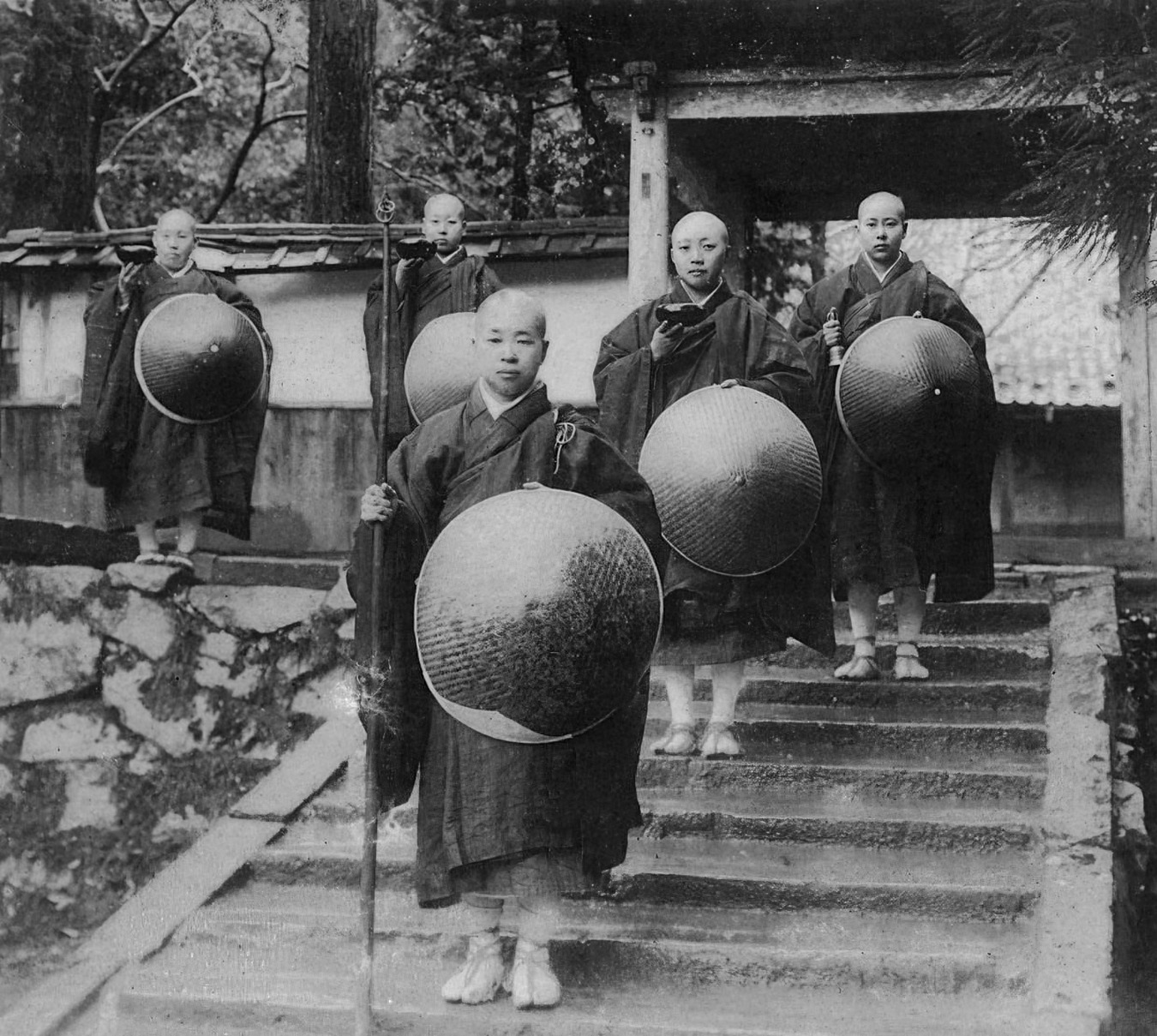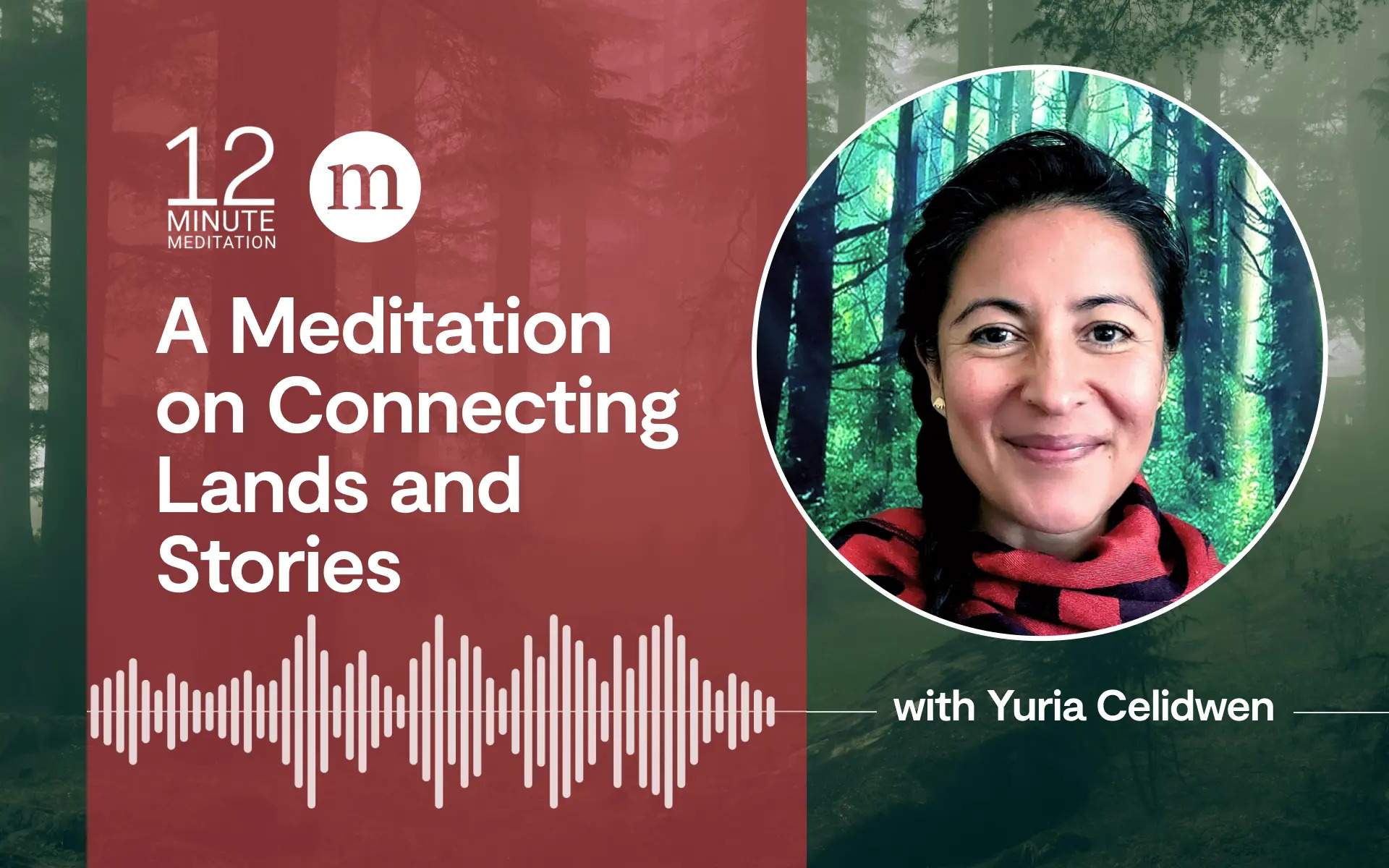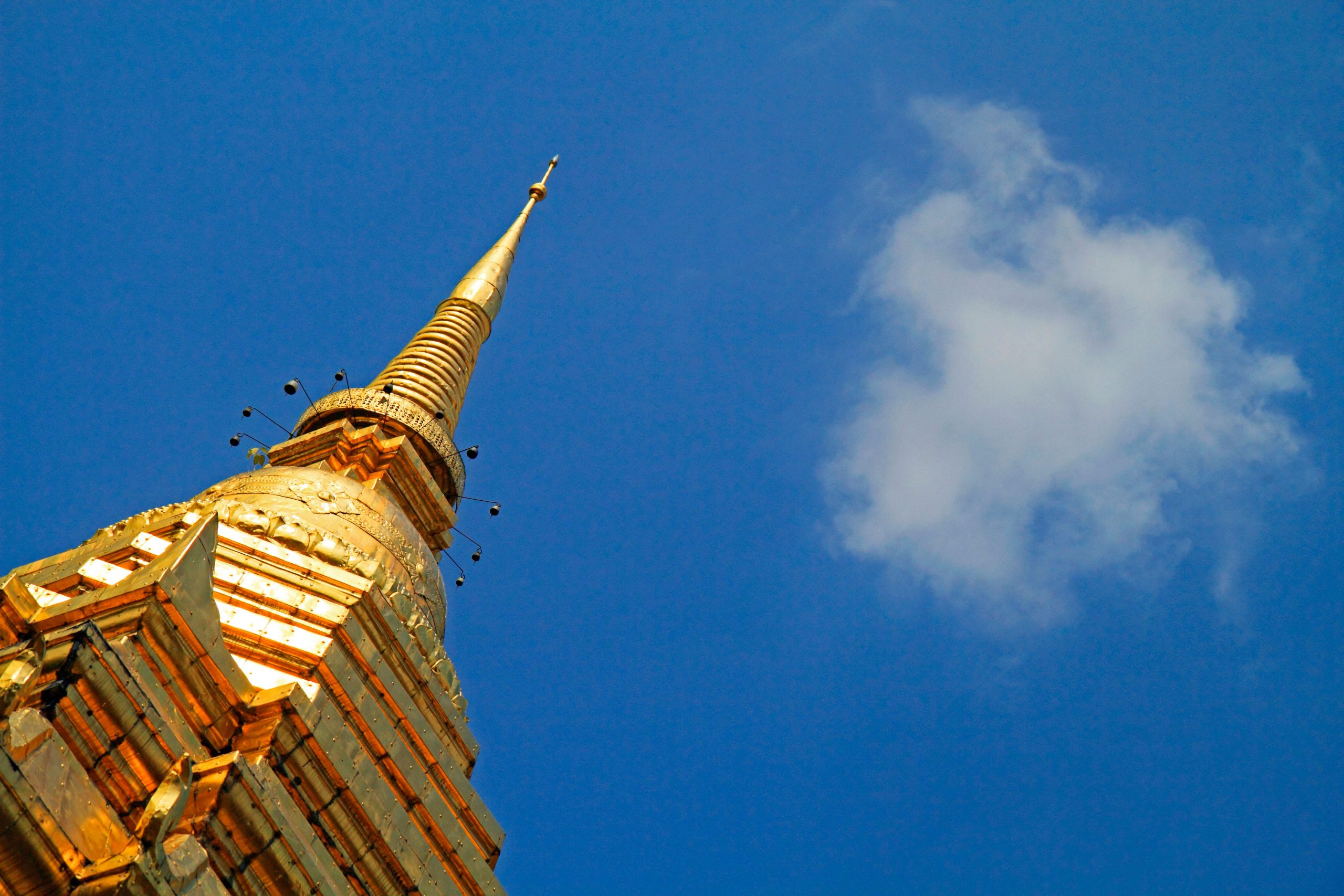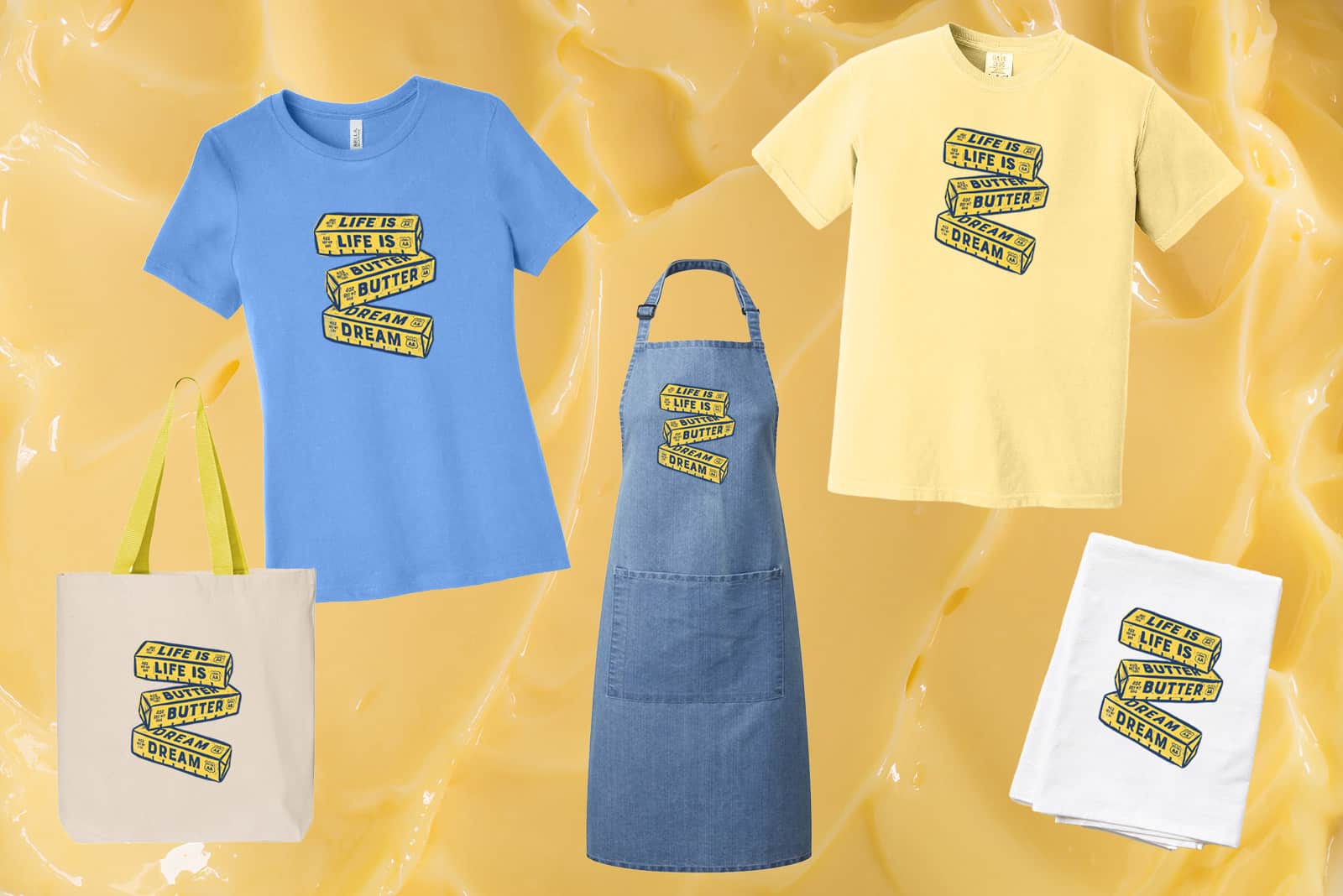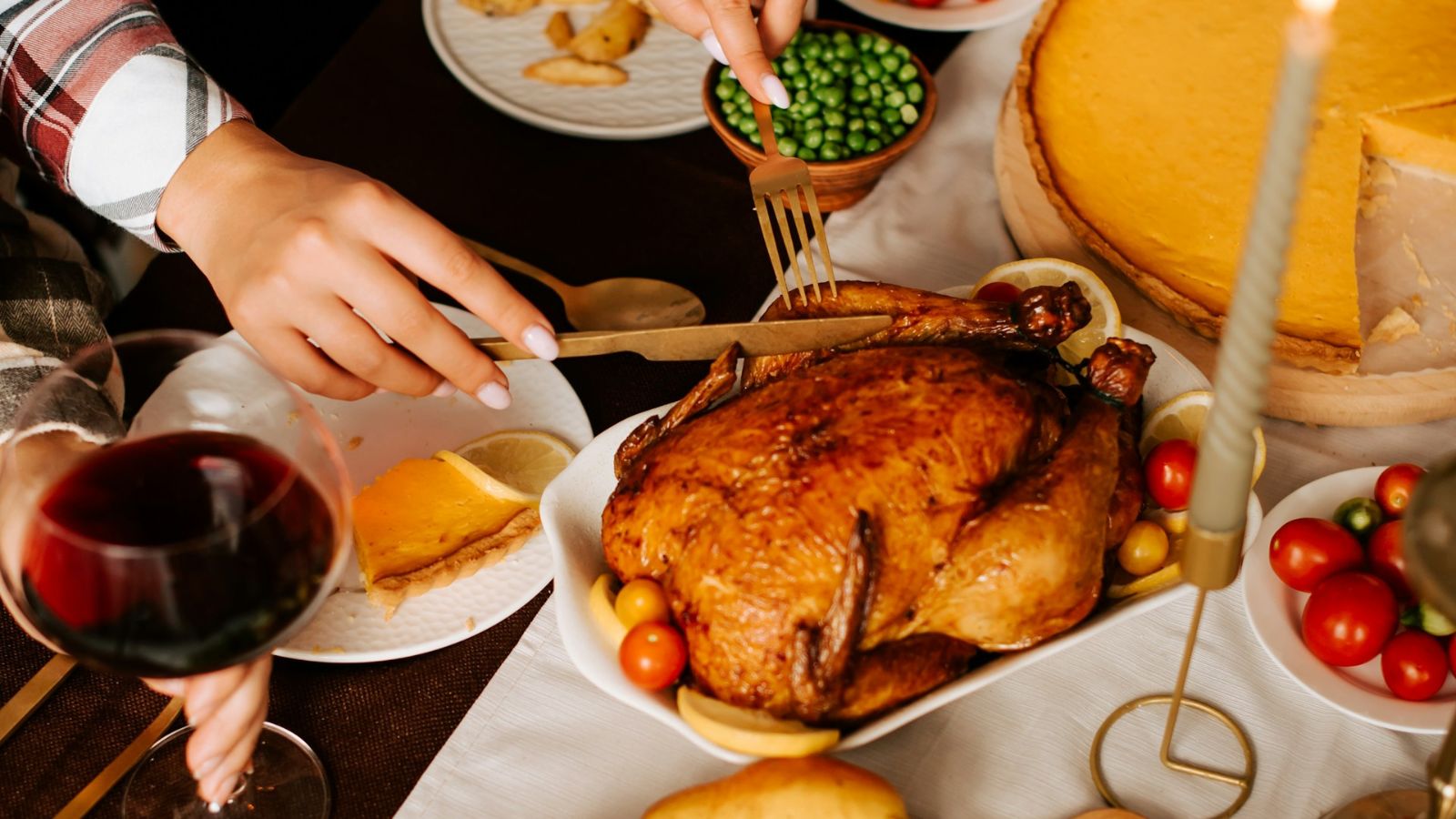Music as an Offering
American ambient music purveyor Jefre Cantu-Ledesma on his antivocational artistry, ordaining as a Zen priest, and his Shaker-inspired album, Gift Songs The post Music as an Offering appeared first on Tricycle: The Buddhist Review.

If you occupy yourself with contemporary American experimental music, it’s quite likely that you’ve come across the name Jefre Cantu-Ledesma. The self-taught musician and composer has been actively shaping the underground for three decades at this point—through playing with his post-rock band Tarentel, running his now-defunct label/platform Root Strata, collaborating with artists such as Liz Harris (alias Grouper), Ilyas Ahmed, or Félicia Atkinson, and, of course, working on his own music and solo projects.
Cantu-Ledesma’s newest album, Gift Songs, is a gorgeous collection of ambient-leaning compositions based on acoustic sound sources, featuring a community of musicians from his current home in rural Hudson Valley, Upstate New York. Working a day job as a hospice chaplain, the multifaceted artist also happens to be an ordained Soto Zen priest, currently teaching with the Brooklyn Zen Center. Tricycle author Stephan Kunze caught up with him to talk about his individual way toward the dharma, and the correlations between his spiritual practice and his music.
Your music career goes back three decades, but where did your spiritual journey start? Going to church was a central part of my life growing up. My mom was a very devout Christian. I was always very moved by liturgy, the sense of community, and the comfort the church provided for me. I certainly remember having feelings of awe, just feeling overwhelmed emotionally. It was also complex and difficult at times, and got more so as I moved into my teenage years.
And when did you discover Zen? I moved to San Francisco in 1994 to go to art school, and when I got out of college, I stayed there. I’d started playing music. It was a difficult time in my life; I was really searching. I had [just] started going to therapy, when a friend of mine handed me this book, Everyday Zen by Charlotte Joko Beck. I didn’t know anything about Buddhism, but I consumed it. And I lived pretty close to the San Francisco Zen Center, which I was not aware of. Around 2002, I started going there and sitting regularly. By 2005, I had a teacher and received precepts, and I was on the path.
What were you searching for? I was suffering, confused, and in a lot of pain because of some circumstances of my childhood. What I read in that book and what I saw at San Francisco Zen Center resonated with something deeper in me that I wasn’t even aware of. Going to dharma talks, I didn’t understand the first thing they were talking about, but something was transmitted. I certainly felt a sense of wholeness, of groundedness in the people there, a sense of not being so thrown around by emotions all the time. I was on an emotional roller coaster for the first thirty years of my life, so really I was searching for some peace. In San Francisco, there was a wonderful community of people that I fell into—musicians, really loving and caring people, some that I’m still very close to. But it wasn’t enough, and I needed to go deeper.
Could you try to describe what was transmitted to you? At first, I was noticing that thoughts were just coming out of nowhere, and that I was making a choice to grab on to a thought and turn it into a whole story. That blew me away. It was important to see that on my own, without anyone showing it to me. I didn’t have a teacher yet when I sat my first seven-day residential retreat. It was physically challenging but not overwhelming. It was just hard psychologically to be thrown into such an intense schedule. But I got [to] the other side of it. I was so happy, and I felt so light. Dogen says that we’re verifying our Buddhaness. It’s not that we’re creating it, we’re verifying it. That felt like the beginning of that verification—like a confirmation. I felt this spaciousness, that causeless kind of joy. I didn’t look back, it was enough to get me on the path.
You underwent Zen training over the next fifteen years. In 2021, you were ordained as a Zen priest. Why did you decide to go down that route? I have no idea. It doesn’t feel like a decision I made—life made this decision for me. It’s myriad causes and conditions that just came together. I never had any desire to be ordained. Even my teacher, she was like, “Oh, you’re a lay student. Just continue on that path.” And that made sense to me. But now it feels like it was a response, as if someone gives you a gift and you want to say thank you. That response came not from my conceptual mind but out of my heart. My dharma name has “devotion” in it, and being a priest just feels like a new expression of that devotion for me.
What is your specific school or sect? It’s the Suzuki Roshi lineage of Soto Zen. San Francisco Zen Center was founded by Suzuki Roshi in the 1960s. My root dharma teacher, Teah Strozer, was a founding teacher at Brooklyn Zen Center, which is also Suzuki Roshi lineage. In 2012, I was going through a divorce, and she said, “Why don’t you come to Brooklyn? We could use some help.” I had no intention to ever move to New York; I’ve never imagined myself living there. But she just asked me, and my life opened up in this way.
What does your daily practice look like today? I sit zazen in the morning, and I do service, chanting, and ritual. We have a family altar over here, an ancestral altar. I offer tea and incense to that altar every morning. And then I work as a hospice chaplain, which I see as an extension of my vows. That’s how I embody my vow in the world—working with people who are dying. Obviously, I’m not going around in robes and stuff, but it feels as if that’s how I’m living as a priest in the world. And then there are obviously retreats and sangha stuff happening regularly. I don’t live in Brooklyn but upstate in the Hudson Valley, and our other temple is over in Millerton, which is about an hour east of here, so I have to travel to be in a sangha situation.
How does your Zen practice inform your music practice? In my experience, Zen practice allows you to get out of your own way and just let this innate creative energy flow without a lot of confusion. Over time, I’ve been able to trust this generative energy that comes through us. It can get tampered down by thinking and conceptualizing. All those things are fine and part of the process. But everything has its place, and I’ve just learned to trust more. My work has also become more collaborative, and I think that’s an expression of allowing other musicians to be themselves, which is a direct effect of practice. I don’t have to be the one that’s driving the bus all the time. I can rely on a collaborative wisdom to arise when I’m playing with people.
That aspect is interesting. These days, the solo musician has become the norm instead of the ensemble. It’s all about efficiency, individuality, and competition, which is a direct reflection of capitalist society. Well, my life is centered on my vow, my family, and my work. I love making music, and I hope to continue to do it, but what you’re pointing to is built around the need to support oneself. And music is not my vocation. Even if everyone stopped listening, I would still keep making music, because I really enjoy it. My daughter and I were playing music this morning together. It’s integral to my daily life now, but I don’t overinvolve myself in trying to be a quote-unquote musician or creating this persona out in the world that people have to identify with to like my music.
 Jefre Cantu-Ledesma. Photo by Brandon Schulman.
Jefre Cantu-Ledesma. Photo by Brandon Schulman.That’s true. Your music has a certain presence, and it doesn’t need any personal stories attached to it to make sense. Well, thank you. I wonder if it’s also a generational thing, because I came up in the 1990s playing music, and there wasn’t this social media machine that seems to be running now, where everyone’s a maker, and everyone has to market themselves, because now the individual is the product. That just wasn’t true then. I actively limit my social media presence, because I don’t think it’s very wholesome. It could just be a product of coming from a different age, but then again, this isn’t my vocation either, so I don’t feel like I need to be out there, making myself into a product. I just let the music speak for itself. It’s an offering.
What music were you drawn to before you started making music? I have fond memories of falling asleep with the radio on and just listening to whatever was coming through. There was a great college radio station in Houston. I’d hear early hip-hop, punk, hardcore—all these things feel very formative to me. Then I went to college, where I was first exposed to ambient composers and venturing away from pop into underground music. Moving from Houston, where I would maybe see a show once a season, I was constantly going to shows in San Francisco, and I saw a lot of amazing music that completely transformed the way I looked at it. Guitar was my main instrument, so I was drawn to music that centered the guitar, and certainly, as [my first band] Tarantel began to form, we were listening to a lot of what later became known as post-rock.
You’re completely self-taught. Do you have any knowledge of music theory? I know a bit now, enough to get by, because I tend to play with musicians who are incredibly versed in theory and proficient at their instruments, so it’s helpful for me to be able to speak to them in their language. I work with people who are incredibly patient and generous with me. You know, I respect the idea of music theory, but it’s not necessary to create sound. You don’t have to know any theory to play some notes on the piano, so that’s always been, for better or for worse, kind of my guiding light.
To me, some ideas of Zen Buddhism and “experimental music,” for lack of a better term, seem to correlate. Both focus on presence, awareness, and acceptance. I find the idea of improvising, or rather instantly composing music, to be quite Zen too. That really resonates with my experience. It’s about allowing the music to have a life of its own that isn’t necessarily constrained by my own ideas. For [my new album] Gift Songs, I had no idea what that record was going to sound like. I went into the studio with a drummer and a piano player, and the music just emerged. I almost feel the music becomes sentient, like it has its own opinion and starts to make its own choices. You have to be open to hearing what the music wants. If I try to impose my idea, it’s not as successful, not as interesting. I don’t come in with a score or even with set ideas. The three actual Gift Songs were just [pianist] Omer and I sitting down at the beginning of the studio session because the drummer was late. I didn’t know what the record was going to be, but over time, I realized these three pieces are almost like a key to the record as a whole.
It’s about allowing the music to have a life of its own that isn’t necessarily constrained by my own ideas.
Why did you actually choose to call them Gift Songs? Are you familiar with the Shakers, that Protestant Christian movement from the 18th century? I found out about them when I lived in San Francisco because of an exhibition of their drawings. The Shakers made drawings and furniture, very simple, almost Danish, but even more minimal. These folk drawings [were] done by people that weren’t trained, and they felt these drawings were gifts from God, so they wouldn’t sign them. They were messages received directly from God. I was totally captivated by this work. For many years I’ve loved these gift drawings, and this record happened to be the one where the title Gift Songs seemed appropriate.
The whole A-side is occupied by one long-form piece, “The Milky Sea.” Talk about the genesis of that composition. That piece started off very bare-bones, just drums and piano, and it took months to figure out what it wanted to be. It started with an improvisation, and then it slowly began to turn into what it is, this very dense, full thing. I ended up adding all these guitars and organs and shakers and multiple tracks. There’s stuff that didn’t end up on there, that had to be stripped away. There’s cello and vibraphone, there are all these things. I started layering it up to create that vibrancy—the vibrant sheen. It was a nightmare to mix, though; I think we had like seven different mixes.
The format reminds me of those 1970s kosmische or prog records, where you had a very long piece on one side, and then a few shorter ones on the flip. I love that too—like Can, or maybe Pink Floyd, or Neu! That always captivated me. I still create music based on the structure of the vinyl. You can get a good twenty minutes [on one side], then the sound starts to deteriorate. “The Milky Sea” is twenty minutes long because I wanted it to be on side A of the record. I still think about the process of getting up and turning the record over. Even if only a small percentage of the people are going to listen to it that way, it helps me to sculpt the music, to create the shape of it. Vinyl gives you these beautiful constraints.
Any musical plans for the immediate future? I’d like to go back into the studio with the same group of people [from Gift Songs] and see what emerges, maybe later in the year. My life is more stable now than it has been [in] a long time. The studio is fifteen minutes from my house. All these people live here in the Hudson Valley. It feels like a rich community. And again, I love doing music, but I’m also a dad, I’m a full-time hospice worker, I’m a Zen priest. Those things are in the center of my life, and, obviously, those all come first.

 Astrong
Astrong 







